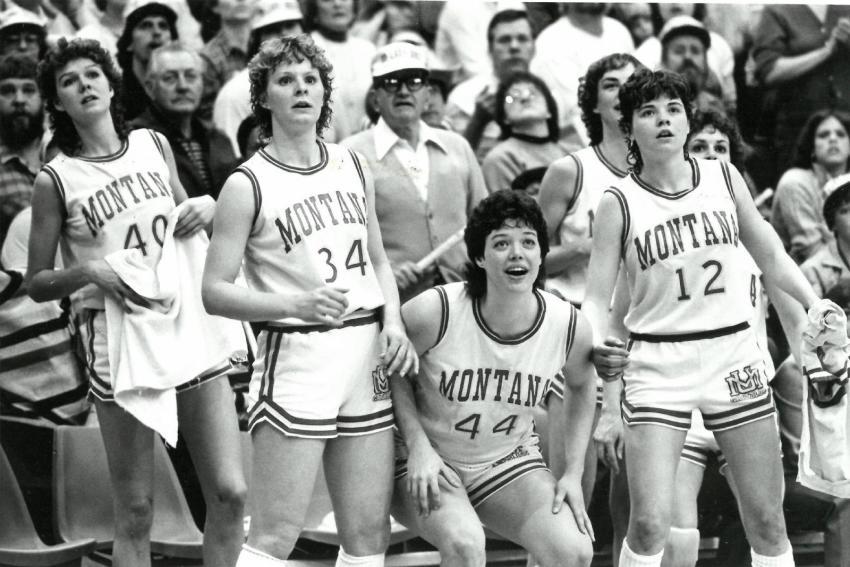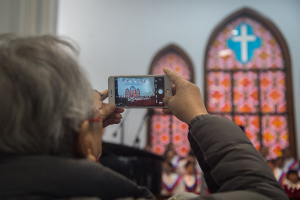'The House Rob Built' follows inspiring legacy of Christian coach Rob Selvig

Longtime basketball coach Rob Selvig can still vividly remember a time when athletic opportunities for women were virtually nonexistent.
Selvig grew up, together with seven siblings, in the small town of Outlook, Montana, in the 1950s and ‘60s. Though he and his brothers were given sports scholarships and had ample opportunity to play on sports teams, his three “very athletic” sisters weren’t awarded the same treatment.
“It didn’t make any sense,” he recalled.
So in 1978, when offered the opportunity to coach women’s basketball at his alma mater, the University of Montana — at a time when women’s basketball wasn’t even recognized by the NCAA — Selvig gladly accepted.
“I could relate to the frustrations that women had,” he said.
Over the next 38 years, Selvig would establish a lasting legacy at the helm of the Grizzlies, also known as the Lady Griz, with an astonishing record of 865 wins to 286 losses, 24 conference championships and 21 NCAA playoff appearances.
But the influence of Selvig, a Christian who says his faith is “very important” to him, reached far beyond sports, impacting generations of women with his determination, humility, and example of servant leadership.
Selvig’s career is the subject of a new documentary, “The House That Rob Built,” (1091 Pictures), from filmmakers Jonathan Cipiti and Megan Harrington. The hourlong documentary features decades of footage and testimonies from a number of Selvig’s former players who discuss the famed coach’s impact both off and on the court.
Watch The Christian Post interview Rob Selvig
Harrington told The Christian Post that it was “really important” that the documentary encompassed all 38 years of Selvig’s coaching, spanning “generations of women.” She wanted to highlight that the legacy and longevity of Selvig’s program was built over time and on the backs of “incredible women who served as role models for the next generation.”
Though the passage of Title XI of the Education Amendments Act of 1972, which made it illegal to discriminate on the basis of sex within any federally funded educational program, helped pave the way for Selvig’s legacy, change didn’t happen overnight.
“It’s more difficult to understand now ... because women's sports have come so far. But there was a time when it wasn't [that way]. I want people to know about this story, because it's an important part of history that is forgotten," Harrington said.
“At a time when people were not taking women seriously, [Selvig] believed in them."
Under Selvig’s tenure, the university first offered basketball scholarships to Native American women — and his time as head coach created a legacy of optimism and winning that brought the support of the entire community. Though offered several ‘higher profile’ jobs in the NCAA over the course of his career, Selvig stayed in Montana because he felt “called” to say there.
Selvig admitted he got into women’s coaching “by chance,” as he initially thought he’d accepted a high school men’s job.
“But the guy didn’t retire, so they asked me if I’d take the women,” he shared. Though he’d only coached women “a little bit” at basketball camps, Selvig accepted the job, adding he never coached “guys or gals” “any differently.”
“They didn't question anything I told them; they didn't question my coaching. They were just so eager to learn and so eager to take advantage of an opportunity they never had,” he said. “I was just extremely fortunate to be a part of the growth of women's sports in general.”
Watch The Christian Post interview Megan Harrington
Selvig stressed he doesn’t view “The House Rob Built” as a movie about himself; rather, he sees it as a nod to “the growth of opportunity” and “what women are capable of doing and accomplishing.”
“I had talented, competitive, bright, young athletes to coach, and what more could you ask for?” he said.
When asked about his positive impact on several generations of women, Selvig said that young people simply need to know someone cares.
“Give them a hug. Be understanding [and not] too judgmental, because we all made a lot of mistakes,” he said. “Just let them know they're going make it; they're going to survive because there's someone there that is here for you and loves you.”
Sports teach resilience and empathy, Selvig said, adding that being on a team “strengthens you to be able to handle” tough situations. Still, he stressed, sports “should be fun.”
“It's a game,” he said. “Everything in life isn't life and death. Sports certainly isn't.”
Though Selvig is one of the top 10 winningest coaches in college women's basketball, he’s not in the hall of fame — but Harrington stressed that he “deserves to be.”
“I think it's time that this story is told to raise him up,” she said, adding that while Selvig will always deflect praise, “every ship has a captain, and without the captain, the ship doesn't know where it's going.”
“He led it to shore, and as a result, a legacy has been established and will not be forgotten,” she said. “I hope that when [viewers] leave this, they understand the greatness of sports and what the beauty and goodness of sports are supposed to be like. I want younger generations to remember that ... it was not always this way.”
“The House that Rob Built” is now available on VOD.



























